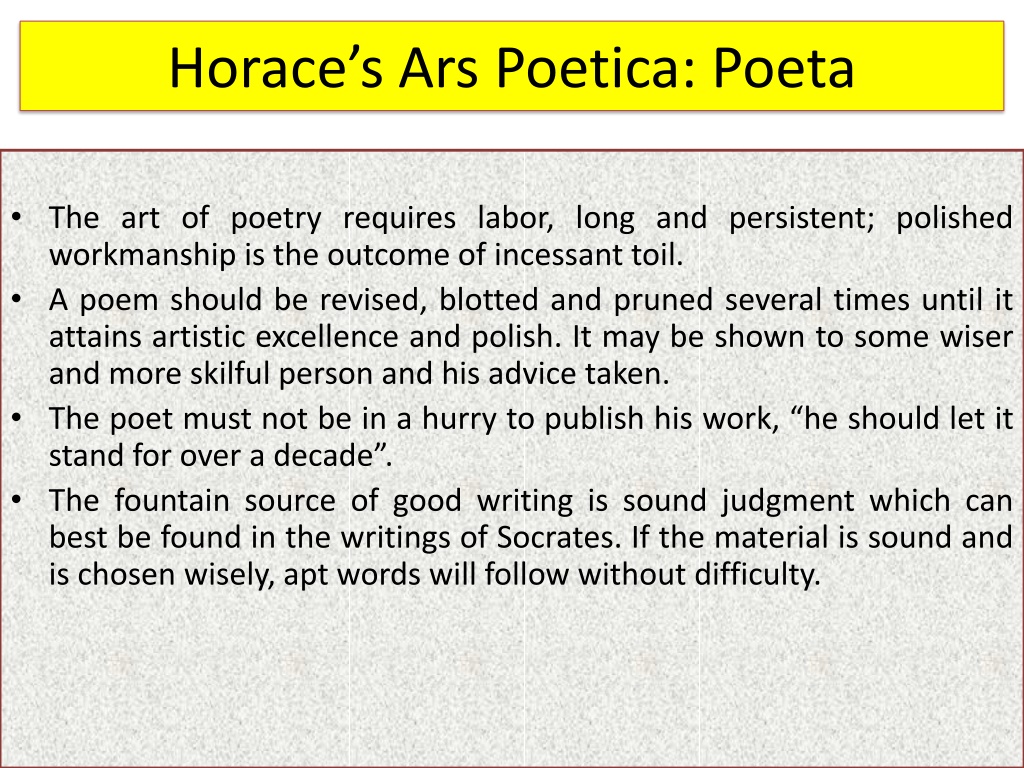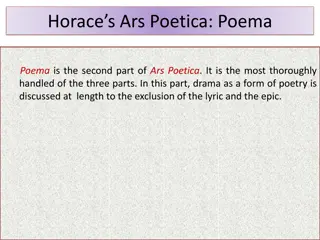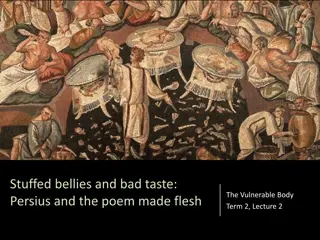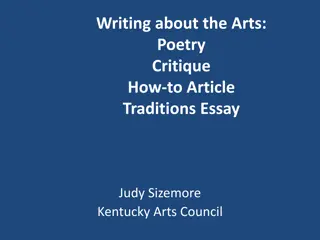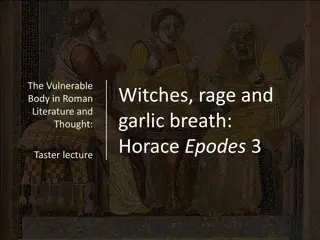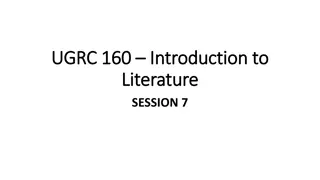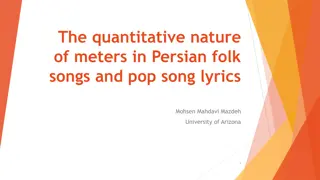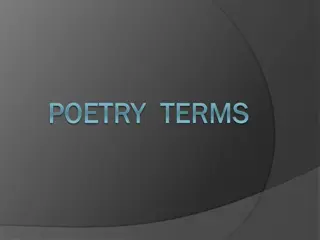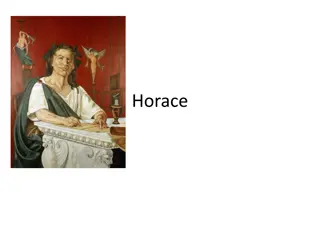Insights from Horace's Ars Poetica on the Art of Poetry
Horace's Ars Poetica, also known as The Art of Poetry, provides timeless insights into the craft of poetry. The text emphasizes the importance of labor, revision, and sound judgment in creating polished and enduring works. It discusses the poet's role as an observer of life, the balance between instruction and entertainment, and the blending of wit with craftsmanship. Additionally, it dispels the myth of poetic madness and highlights the necessity of both natural talent and learned skills in achieving greatness in poetry.
Download Presentation

Please find below an Image/Link to download the presentation.
The content on the website is provided AS IS for your information and personal use only. It may not be sold, licensed, or shared on other websites without obtaining consent from the author. Download presentation by click this link. If you encounter any issues during the download, it is possible that the publisher has removed the file from their server.
E N D
Presentation Transcript
Horaces Ars Poetica: Poeta The art of poetry requires labor, long and persistent; polished workmanship is the outcome of incessant toil. A poem should be revised, blotted and pruned several times until it attains artistic excellence and polish. It may be shown to some wiser and more skilful person and his advice taken. The poet must not be in a hurry to publish his work, he should let it stand for over a decade . The fountain source of good writing is sound judgment which can best be found in the writings of Socrates. If the material is sound and is chosen wisely, apt words will follow without difficulty.
Horaces Ars Poetica: Poeta A poet must be a keen observer of men and manners. He should constantly study the book of life and draw thence, language true to life . Excessive greed and love of money come in the way of good writing. Nobility and dignity of soul are necessary. A poet should instruct, or please, or may combine both these functions. But for the sake of pleasing he should not indulge in romantic extravagances and absurdities. Fictions made to please must keep close to the truth of things. He should aim at mixing pleasure with profit. He should be brief, and avoid all superfluity, for only then would the people pay attention to his instruction.
Horaces Ars Poetica: Poeta The poet who mixes the sweet with the useful has everybody s approval. Such a book enriches the publisher, and prolongs the fame of the author. Minor faults in poetry may be forgiven, because, Even Homer nods . A poet should, however, try to avoid faults as much as he can. If there is much that shines in a poem, a few blemishes will not offend the reader. Poetry has great power and appeal. Great poets have been great prophets. So a poet should not feel ashamed of his office; he should be proud of his calling.
Horaces Ars Poetica: Poeta It is frequently discussed whether a poet achieves greatness through nature or through art. Both are essential for good poetry. Abundant wit or natural ability without a sound workmanship, or mere workmanship without wit or inborn ability, is of no avail, Both wit and training are necessary, The idea of poetic madness or inspiration is absurd. Excess must be kept under restraint. A poet who relies on mere inspiration is generally laughed at.
The End See you next lesson!
